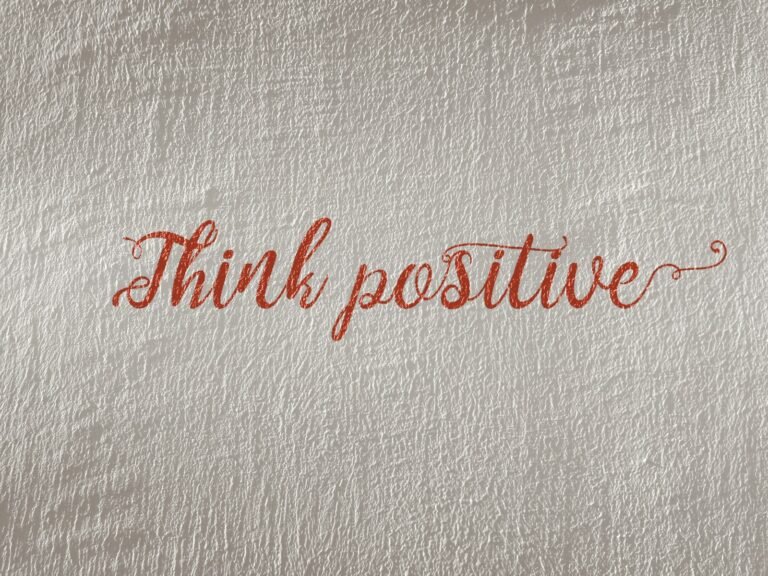How to Reduce Stress and Anxiety Naturally
There’s a growing interest in natural methods for relieving stress and anxiety as many seek alternatives to medication. By incorporating simple lifestyle changes and holistic practices into your daily routine, you can create a supportive environment for your mental well-being. This guide will provide you with practical strategies and insights to help you manage stress and anxiety effectively, allowing you to reclaim your peace of mind and improve your overall quality of life.
Key Takeaways:
- Incorporate regular physical activity into your routine to boost mood and reduce tension.
- Practice mindfulness techniques, such as meditation and deep breathing, to help calm the mind.
- Maintain a balanced diet rich in fruits, vegetables, and whole grains to support overall mental health.
- Establish a consistent sleep schedule to improve rest quality and enhance emotional resilience.
- Engage in social activities and strengthen connections with loved ones to foster a sense of belonging and support.
Daily Rituals for Tranquility
Mindful Morning Routines
Starting your day with a mindful morning routine can set a positive tone that carries through to your daily activities. Consider waking up just 10 to 15 minutes earlier to engage in practices that center you. This could include gentle stretching, practicing deep breathing exercises, or even enjoying a quiet moment with a cup of herbal tea. Each of these activities provides an opportunity to be present, allowing you to ease into the day with clarity and purpose. Engaging in such rituals activates your parasympathetic nervous system, promoting relaxation and reducing anxiety levels before your daily responsibilities begin.
The Art of Taking Breaks
Implementing scheduled breaks into your daily routine can significantly impact your overall stress levels. Whether you are working from home or in a traditional office, short breaks can provide a much-needed respite from your daily tasks. A simple rule is to follow the 25-5 method: work for 25 minutes, then take a 5-minute break. Use this time to stretch, walk around, or practice mindfulness. These moments allow your brain to reset, reducing fatigue and boosting your focus when you return to work.
Taking breaks not only alleviates physical tension but also enhances creativity and productivity. Research suggests that stepping away from demanding tasks can lead to improved problem-solving abilities, as it gives your mind space to wander and connect ideas unconsciously. Embrace the art of taking intentional pauses throughout your day—these intervals can turn into a powerful strategy for managing stress and maintaining your mental well-being.
The Role of Nutrition in Stress Management
Your diet plays a significant role in how you experience stress and anxiety. Nutrients in food not only provide energy and support overall health but also influence your brain’s chemistry and function. Consuming a balanced diet rich in specific nutrients can enhance your mood and resilience to stressors. When you prioritize whole foods, including fruits, vegetables, whole grains, and lean proteins, you’re giving your body the tools it needs to cope effectively with life’s challenges. You may find that changes in your eating habits can lead to a more positive outlook on stressful situations and improved emotional well-being.
Foods That Promote Relaxation
The Impact of Caffeine and Sugar
Caffeine and sugar can contribute to anxiety and stress levels, often having the opposite effect of healthy foods. While caffeine may provide a temporary boost in energy and alertness, it can also lead to jitteriness, irritability, and increased heart rate, which can amplify feelings of stress. Similarly, consuming high amounts of sugar often leads to energy spikes followed by crashes, which can leave you feeling drained and anxious. Moderating your intake of caffeinated beverages and sugary snacks can significantly influence how your body copes with stress.
Consider reducing your consumption of caffeinated drinks and opting for herbal teas or other non-caffeinated beverages instead. Avoiding high-sugar snacks also allows for more sustained energy levels, which can provide a stable foundation for managing daily stressors. Balancing your diet with nutritious foods while being mindful of your caffeine and sugar intake can empower you to navigate challenges more effectively.
Nature’s Remedies: Herbs and Supplements
Top Herbal Allies for Anxiety
In your quest to manage anxiety naturally, certain herbs stand out as effective allies. Ashwagandha, often referred to as an adaptogen, works by modulating stress hormones and has shown a remarkable ability to reduce cortisol levels. Studies indicate that regular supplementation can decrease anxiety levels by up to 30% over a period of weeks. Another powerful herb, chamomile, not only provides a calming effect but also supports sleep quality, making it a dual-purpose tool in your wellness arsenal. You might also consider lavender, which has been shown to alleviate anxiety symptoms and promote relaxation when used aromatically or in tea form.
The Science Behind Adaptogens
Adaptogens, including herbs like rhodiola and ginseng, play a significant role in helping your body adapt to stress. They work by balancing hormones, particularly cortisol, which can be heightened during periods of anxiety. Research has shown that rhodiola can improve symptoms of stress and fatigue by promoting a more resilient response to physical and emotional challenges. Some studies have also found that ginseng enhances cognitive function and reduces anxiety, further illustrating how these plants can foster mental well-being.
Clinical trials support the efficacy of adaptogens, demonstrating notable improvements in mood and reductions in anxiety disorders among participants. A particular study involving rhodiola found that participants experienced a dramatic decrease in fatigue and anxiety levels within just four weeks of supplementation. Incorporating these adaptogenic herbs into your wellness regimen can help stabilize your stress response and pave the way for a calmer, more balanced mind.
Breathing Techniques That Change Everything
Breathing techniques can significantly impact your mental state and help you manage stress and anxiety more effectively. Engaging with your breath is a powerful way to regain control and promote a sense of calm. Among the various methods, deep breathing and diaphragmatic breathing are two necessary techniques that can enhance relaxation and emotional resilience.
Deep Breathing vs. Diaphragmatic Breathing
Deep breathing typically refers to any breath that is slower and deeper than your usual pattern. Instead of shallow breaths that primarily fill the upper chest, deep breathing encourages a more comprehensive filling of the lungs. While this method can offer immediate relief, it often doesn’t fully engage the diaphragm, the muscle that can more effectively regulate your breath and promote relaxation.
Diaphragmatic breathing, on the other hand, involves using your diaphragm to its full capacity. This technique allows you to take in more air, leading to higher oxygen levels in your bloodstream and a greater calming effect on your nervous system. With practice, diaphragmatic breathing can become a natural response to stress, helping you shift from a state of agitation to one of tranquility.
The 4-7-8 Method Explained
The 4-7-8 method, developed by Dr. Andrew Weil, is a specific breathing technique designed to promote relaxation and reduce anxiety. It involves inhaling through your nose for a count of four, holding your breath for a count of seven, and then exhaling through your mouth for a count of eight. This simple yet effective practice encourages mindfulness and deepens your breathing, bridging physical and mental relaxation in a structured manner.
Implementing the 4-7-8 technique can be done in just a few minutes, making it a useful tool for any moment that feels overwhelming. Starting with just four cycles can significantly calm your mind, and over time, you can increase to eight cycles as you become more comfortable. Integrating this technique into your daily routine may not only help reduce anxiety but also improve your overall emotional well-being.
Movement as Medicine: Exercise and Mental Clarity
Engaging in regular physical activity acts as a natural antidote to stress and anxiety. Exercise has a profound impact on both your body and mind, influencing your mood in more positive ways than you may have anticipated. It releases endorphins, your body’s natural mood elevators, which can lead to an overall sense of well-being. Additionally, physical activity encourages the production of neurotransmitters like serotonin and dopamine, which play vital roles in regulating emotions. Incorporating movement into your daily routine not only improves physical health but can also clear mental fog, leading to greater focus and productivity.
Types of Exercise That Alleviate Anxiety
Different types of exercise can cater to various preferences and lifestyles, meaning you can find something that resonates with you personally. Consider these options to help alleviate anxiety:
- Yoga: Combines physical postures, breathing exercises, and meditation to create a calming practice.
- Walking or Jogging: Simple yet effective forms of aerobic exercise that can be done almost anywhere.
- Strength Training: Engaging muscles can help relieve tension and promote confidence.
- Dance: Expressive and fun, dance workouts can lift your spirits while providing cardiovascular benefits.
- Cycling: Whether outdoors or on a stationary bike, cycling is a great way to boost endorphins.
Recognizing the diverse benefits of these activities can empower you to take charge of your anxiety management. By integrating regular exercise into your lifestyle, you’re setting the stage for improved mental clarity and emotional resilience.
| Type of Exercise | Benefits for Anxiety |
| Yoga | Promotes relaxation and mind-body connection. |
| Walking | Boosts mood and provides gentle cardiovascular fitness. |
| Strength Training | Builds confidence and releases built-up tension. |
| Dancing | Enhances mood through creative expression. |
| Cycling | Improves cardiovascular health while engaging muscles. |
The Connection Between Fitness and Mood
Your mental state can significantly improve when you establish a regular fitness routine. Studies indicate that even short bouts of physical activity can lead to noticeable decreases in anxiety levels. In addition, committing to a consistent exercise schedule fosters a sense of discipline and achievement, which can translate into improved self-esteem and confidence. Engaging with a workout buddy or group can also provide social support, further enhancing your mood and reducing feelings of loneliness.
Numerous research studies link habitual exercise with lower rates of depression and anxiety; for instance, a 2018 meta-analysis revealed that individuals participating in regular physical activity experienced a 60% reduction in depressive symptoms compared to sedentary individuals. Exercise stands as a powerful tool not only for physical fitness but also for emotional stability, creating a holistic approach to wellness that embraces both your body and mind.
Conclusion
Now that you have explored various methods to reduce stress and anxiety naturally, you can begin to implement these strategies in your daily life. By incorporating practices such as mindfulness, regular exercise, and maintaining a balanced diet, you can create a supportive environment for your mental well-being. It’s important to recognize that managing stress is a gradual process that requires commitment and consistency. You can also look into other resources that provide further insight, like the 10 natural remedies for reducing anxiety and stress, which may offer additional techniques that resonate with you.
As you initiate on this journey towards reducing stress and anxiety, stay open to adjusting your approach based on what works best for your unique situation. Seek support from friends, family, or professionals when needed, and remain patient with yourself as you navigate through challenges. Through these natural strategies, you can cultivate a greater sense of peace and resilience, promoting a healthier, more balanced life.
FAQ
Q: What are some natural methods to reduce stress and anxiety?
A: There are several natural methods to help alleviate stress and anxiety. Regular physical activity, such as walking, yoga, or dancing, can increase endorphins and improve mood. Mindfulness and meditation practices can help calm the mind and provide clarity. Additionally, spending time in nature or engaging in hobbies can serve as effective distractions. Adequate sleep and a balanced diet also play significant roles in maintaining emotional balance.
Q: How does breathing exercise help in managing stress and anxiety?
A: Breathing exercises are effective tools for managing stress and anxiety because they activate the body’s relaxation response. Techniques such as deep belly breathing or the 4-7-8 method can slow heart rate and reduce tension. Focusing on breath can also help divert attention away from anxious thoughts, offering a moment of calm in challenging situations.
Q: Can maintaining a healthy diet reduce anxiety levels?
A: Yes, a healthy diet can play a significant role in managing anxiety. Consuming a balanced diet rich in whole foods, such as fruits, vegetables, whole grains, and lean proteins, supports overall mental health. Omega-3 fatty acids, found in fatty fish, and magnesium, found in leafy greens and nuts, have been linked to reduced anxiety symptoms. Staying hydrated also helps maintain optimal cognitive function.
Q: How can social connections impact stress and anxiety levels?
A: Building and maintaining strong social connections can significantly impact stress and anxiety levels. Having a supportive network provides emotional support during tough times, helping individuals feel understood and less isolated. Engaging in conversations, sharing experiences, or simply spending time with loved ones can create a sense of belonging and alleviate feelings of anxiety.
Q: Are there specific herbs or supplements that can help reduce stress and anxiety?
A: Certain herbs and supplements have been shown to help manage stress and anxiety naturally. For example, ashwagandha and valerian root are known for their calming effects. Omega-3 fatty acids and B vitamins are also beneficial for mood regulation. However, it’s important to consult a healthcare provider before starting any new supplements to ensure they are appropriate for individual needs and to avoid potential interactions with other medications.















